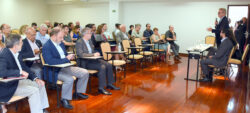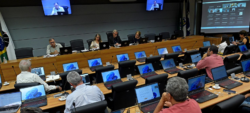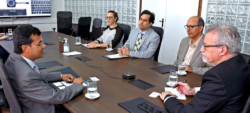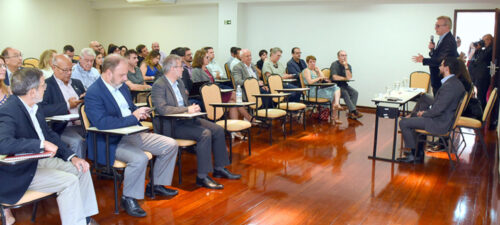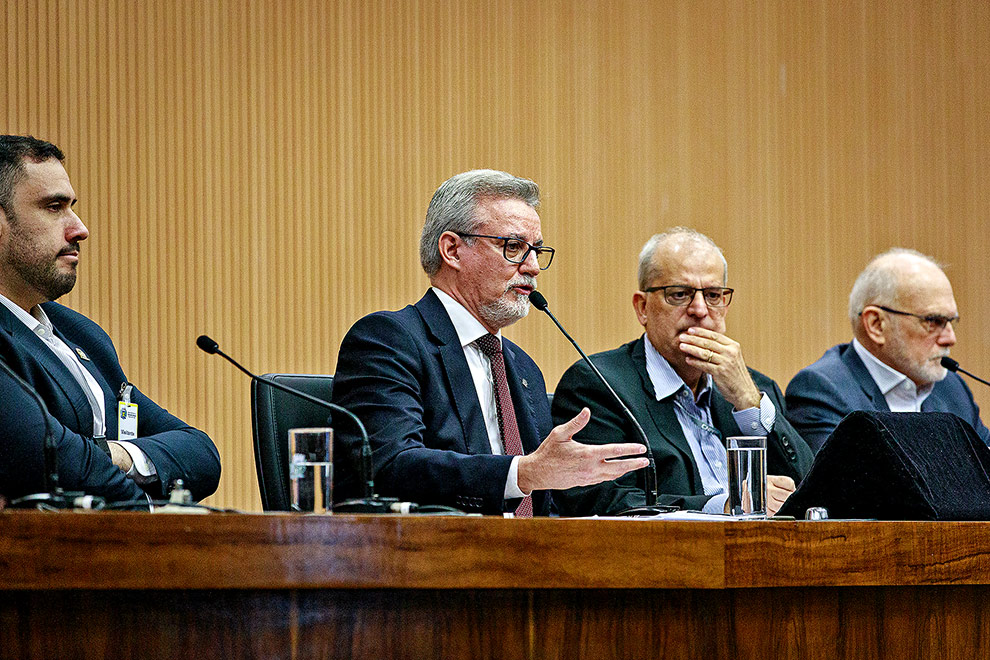
The rector of Unicamp, professor Antonio José de Almeida Meirelles, said this Tuesday (28), in a hearing at the City Council, that the city of Campinas meets all the conditions to become the main hub of science, technology and innovation in the country . The rector – who participated in a meeting of the Science and Technology Commission held in the morning at the Legislative House – stated that the city must participate in the national reindustrialization effort, but that this process should focus precisely on the three axes of development, science and technology to generate innovation in products, processes and services.
The rector recalled that the city has one of the highest GDPs (Gross Domestic Product) in the country and has a large concentration of scientific and technological equipment such as the CNPEM (National Center for Research in Energy and Materials) and Sirius, for example, in addition to centers of research and innovation and its various universities.
“Reflecting on the challenges we face in transforming our city into the largest hub of scientific, technological and innovation development in the country, the conclusion is the following: the challenge is to articulate this group of actors”, says Meirelles. “These actors may have different scientific, political and ideological perspectives, but, if they are committed to development and if we are able to put a social perspective, of inclusion, into this development, we will find an articulation that will transform our city and our region, without a doubt, in the main center of science, technology and innovation in this country”, says the rector.
“And the coordinator of this effort is the world of politics. The Legislative Chamber, councilors, mayors, municipal governments in the region and the state and federal governments. It is the sphere of politics that can articulate this set of interests, which has conflicts, but which also has overlaps and possibilities of finding points of convergence”, he believes. “Our challenge is to make this also become an agenda of interest to our population. Innovation has to become a popular flag. May the people identify with it”, says the rector.
For Meirelles, the health care agenda is of interest to all spheres of government, but this is just part of a project that could be larger. “When Unicamp, together with the city hall, councilors and mayors of the region, proposes to the state government the construction of a regional hospital – for which the University would provide land – our concern is to substantially improve the quality of medical care for the needy populations in Campinas and the entire region. Population that depends on the SUS [Sistema Único de Saúde]”, explains the dean.
“But we don’t just want to provide assistance. What we want is that, around this health care complex in the region, industries that produce equipment, that manufacture pharmaceuticals, biopharmaceuticals, that provide consultancy in the medical field, engineering companies that think about hospital logistics, engineering construction of health equipment, information technology and artificial intelligence and the entire industrial and service complex surrounding this service to the population”, he explains.
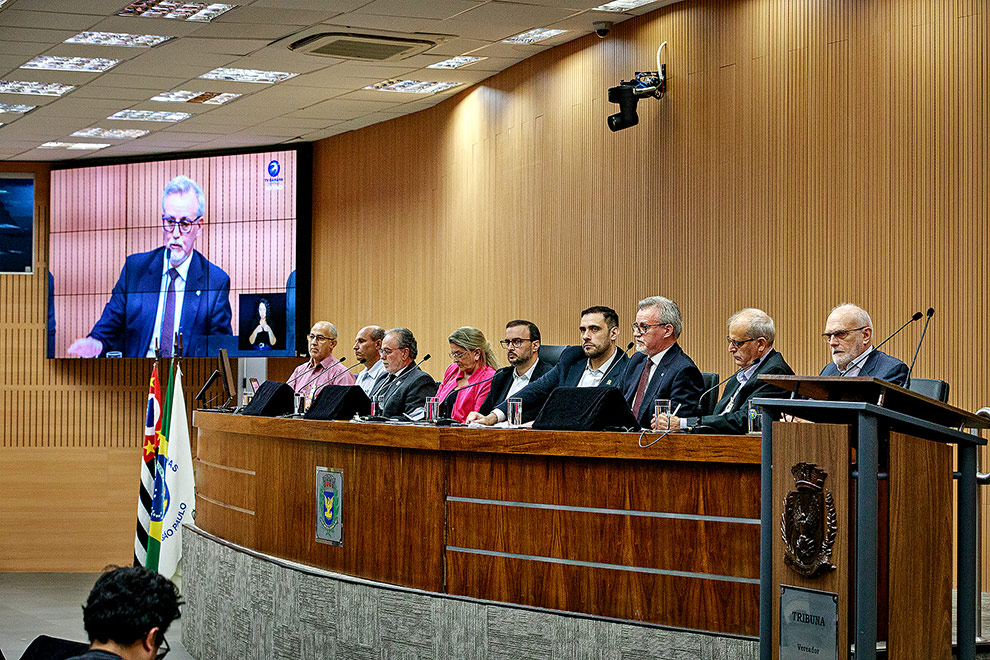
post-pandemic
For the rector, the current post-pandemic period and some geopolitical issues, such as the war in Europe between Russia and Ukraine, have made clear the need to create a strong domestic industry in Brazil. According to him, industrial production has already accounted for a quarter of Brazilian GDP. Today this share is just over 11%, he says.
“We are an economy that is among those that produce the most alcohol in the world, but, at the beginning of the pandemic, we had difficulties offering alcohol gel to the population”, he argues. “And this is a difficult thing to accept, especially in a country like ours, which already has an accumulation of knowledge, science and technology and even industrialization and entrepreneurial potential”, he says.
In addition to the rector, the debate was attended by the municipal secretary of Economic Development, Adriana Flosi, the rector of the Pontifical Catholic University of Campinas (PUC-Campinas), Germano Rigacci Junior, the director of CNPEM, Antonio José Roque da Silva, the president of Informatics of Associated Municipalities (IMA), Elias Tavares Bezerra, the director of the Information Technology Center Renato Archer, Jorge Vicente Lopes da Silva, the president of Foro Campinas Inovadora, Eduardo Gurgel do Amaral, and the president of the Workers' Union in Research, Science and Technology, José Paulo Porsani. The Chamber's Science and Technology Committee is chaired by councilor Gustavo Petta (PCdoB), who organized the event.
The municipal secretary of Economic Development said she was working on science, technology and innovation projects in partnership with institutes, research centers and PUC-Campinas. “In addition, we have a very strong partnership with HIDS (HUB International for Sustainable Development), which started at Unicamp, but is now a project for all of us. It’s a city project,” said the secretary.
The dean of PUC-Campinas recalled that the existing ecosystem of technology companies in the city requires qualified personnel and called for better quality in the training of students in primary and secondary schools.
The president of CNPEM said that the central problem is the quality of employment in Brazil. “When comparing countries that have a GDP similar to that of the State of São Paulo, such as Sweden and Belgium, for example, one thing stands out, in addition to the number of formal jobs they produce. Of the total job vacancies created in these countries, 70% are in industry. In Brazil, and in the State of São Paulo, these rates are around 16% to 18%”, he argued. “This means that not only do we have a low level of formal employment, but we also have a low level of jobs linked to industry”, he notes.
Councilor Gustavo Petta said he was optimistic about the development and implementation of projects linked to science and technology in the city. “I believe that, despite a lot of difficulties still to come, the political aspect we are experiencing at the moment allows for greater harmony between the different spheres of government around a development project that has as one of its fundamental centralities the area of science and technology”, assesses the councilor.
Originally published on Unicamp website
